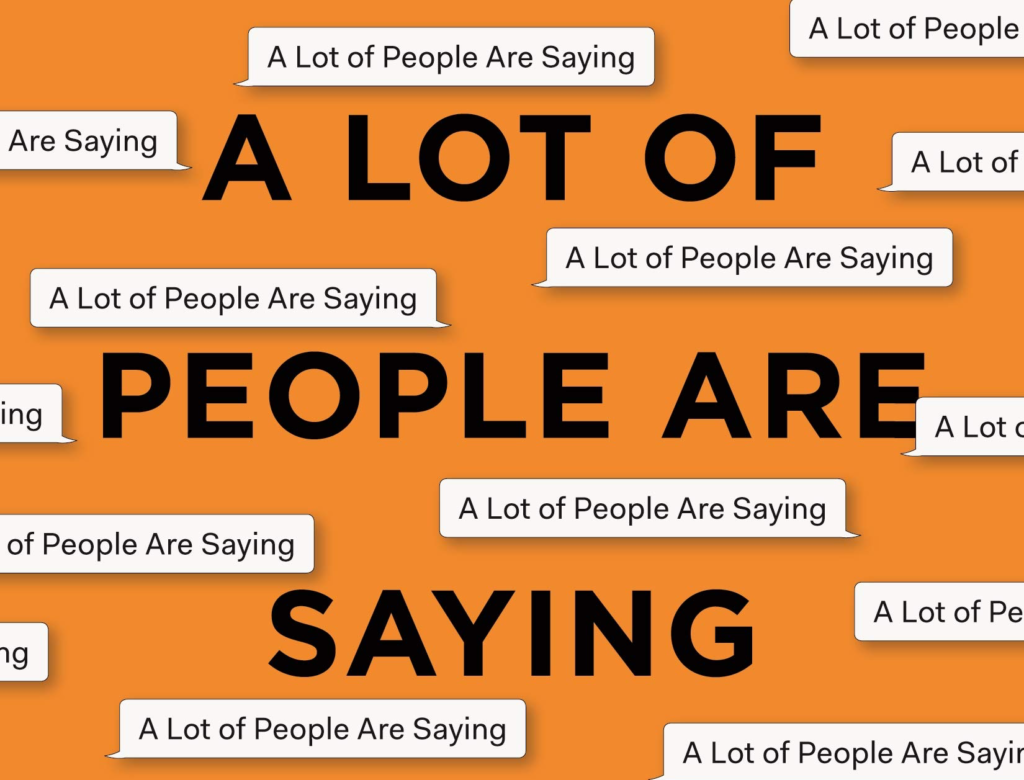Conspiracism and the election

Last year I wrote about the concept of “conspiracism”:
A new book by Nancy Rosenblum and Russell Muirhead posits that Donald Trump is emblematic of a growing trend, which is conspiracy theories that feature no actual theory:
Conspiracy theorizing today dispenses with the burden of explanation. In fact, sometimes, as in Pizzagate, there’s absolutely nothing that needs to be explained, and there’s no real demand for truth or facts. There are no actual dots that need to be connected to form a pattern.
Instead, we have conspiracy charges that take a new form: bare assertion. Instead of trying to explain something that happened in the world, it’s about creating a narrative that itself becomes the reason for the conspiracism. And it even spreads in a much different way.
For instance, much of the conspiracism today spreads through innuendo. You’ll hear people say, “I just want to know more, I’m just asking questions.” Or, as President Trump likes to say, “A lot of people are saying…” This is conspiracy without any theory. It’s about validating preexisting beliefs by constantly repeating false claims that reinforce what you already believe.
So it’s not merely that someone thinks Hillary Clinton is an unworthy candidate; we have to make up a story about her sex trafficking in children. And by repeating these things and assenting to them, you’re signaling a kind of group affinity. Conspiracy without the theory has become a form of political participation.
That, unfortunately, sounds more than plausible.
Rosenblum points out that “conspiracy theory” is a clumsy phrase, since obviously actual conspiracies exist, and it’s desirable to theorize about them. She suggests “conspiracism” is a better term for a kind of epistemic nihilism which is far more common among Republicans than Democrats for what should be obvious reasons:
The right wing wants to delegitimize the government and, really, all of our knowledge-producing institutions. So it’s naturally beneficial for them to spread conspiratorial thinking. The Democrats, on the other hand, generally like government and want to improve it, so they have less reason to embrace conspiracism.
But I want to be clear: There’s plenty of conspiracy theory on the left. Jane Mayer’s book Dark Money, for example, or Elizabeth Warren’s claim that the business model of Wall Street is rigged — these are technically conspiracy theories, and I think they’re true. The difference, though, is that these are attempts to explain what’s going on; it’s not the sort of conspiracism I’m talking about here.
I think this could be tweaked a bit: Conspiracism is probably just as common on the far left as it is on the far right, except in the United States at present the far left is a bunch of freaks sitting in a basement somewhere talking about how the CIA is distributing so-called vaccines that are actually bioengineered to turn kids into corporate zombies, while the far right is called the Republican party.
A perfect example of what Rosenblun and Muirhead are talking about is Trump and his supporters claims about how he would have won the election if only legal votes had been counted.
The remarkable thing about this claim is not just that there’s literally no evidence for it, but that the people who are making it, including Trump himself, are not even bothering to pretend that there is any evidence for it: they just claim it’s true, over and over again. That’s conspiracism in a nutshell.
For example, here’s Ronna McDaniel, chair of the RNC, claiming that there’s a bunch of voter fraud in her home state of Michigan (she’s Mitt Romney’s niece and George Romney’s granddaughter) and, when she’s pressed for some evidence for this claim, says — again, literally — we don’t have any now, but give us some time and we’ll come up with some.
I mean maybe there weren’t actually any names on that piece of paper Joe McCarthy was waving around that “proved” there were 153 communists in the State Department or whatever, but at least he had a piece of paper! These people can’t even be bothered to engage in that level of kayfabe.
And when “evidence” is put forward, it consists of something like a crazy Texas lawyer driving up to Michigan because she’s sure the blahs are stealing the election, so she camps out and films a mysterious box being pulled in a kid’s wagon into a voting center: a box which she’s pretty sure is full of ballots which are arriving after the polls are closed, but are going to be counted anyway:
This video was shared more than 130,000 times in 24 hours, and I’m told it’s still all over Facebook, as “proof” of widespread election fraud. The truth is a bit more prosaic:
There’s a lot more to be said about how the Internet in general and social media in particular seem to be destroying anything resembling rational discourse, but I’m so tired my mind is on the blink, so some other time.


